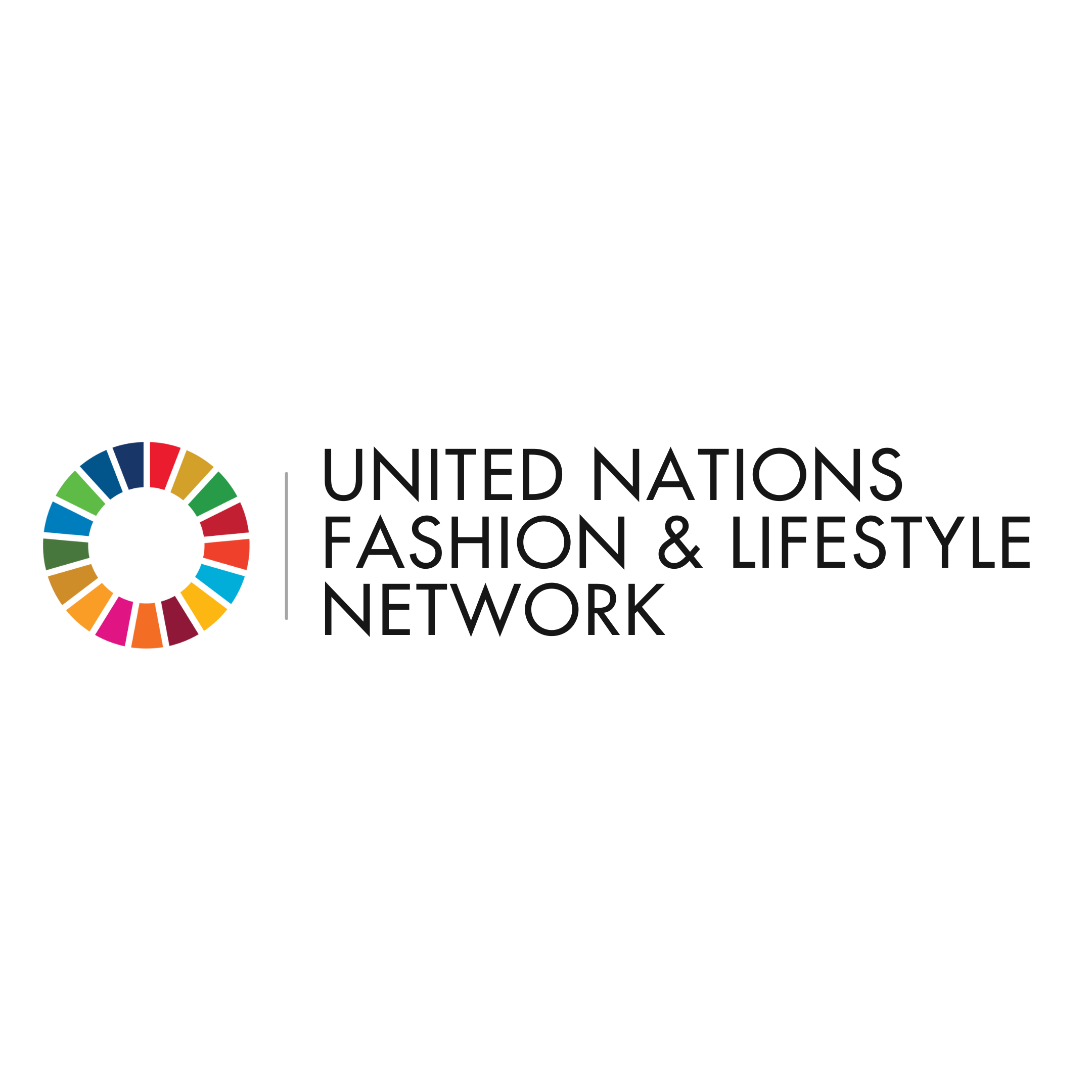Made Trade
Made Trade
(
Private sector
)
#SDGAction52770
Description
Made Trade is a woman-owned, expertly curated marketplace specializing in beautifully designed, ethical and sustainable home goods. On Made Trade, customers can shop with confidence knowing every product is rigorously assessed and verified for both sustainability and equity. Made Trade hand selects beautifully designed, consciously crafted home goods, furniture, clothing, accessories and gifts from around the world that put people and our planet first.
Made Trade's application process includes reviewing sustainable sourcing of materials, verifying safe working conditions, and ensuring everyone along the supply chain is paid a fair wage. Many of the products on Made Trade are made in workshops or factories that have third party certifications that verify sustainability of the materials, fair wages, and/or working conditions, which can be found listed on each product page. Made Trade conducts thorough reviews of each product in order to provide transparency to customers and help people shop responsibly-made goods with ease.
Made Trade independently verifies and vets every product to ensure it meets their core values of equity, sustainability, and transparency. Each of the 135+ brands, small businesses, makers, and artisan collectives Made Trade partners with goes through an extensive application process where they collect detailed information about manufacturing processes, safe labor conditions, fair wages, responsible sourcing of materials, fair trade status, third party verifications and much more.
In addition to verifying and vetting every product and brand on Made Trade against its eight core values, Made Trade is also a member of Climate Neutral Certified. Through this partnership, Made Trade offsets its entire carbon footprint by funding renewable energy projects around the world.
Climate Neutral Certified
SDGS & Targets
Goal 8
Promote sustained, inclusive and sustainable economic growth, full and productive employment and decent work for all
8.1
8.1.1
Annual growth rate of real GDP per capita
8.2
Achieve higher levels of economic productivity through diversification, technological upgrading and innovation, including through a focus on high-value added and labour-intensive sectors
8.2.1
Annual growth rate of real GDP per employed person
8.3
Promote development-oriented policies that support productive activities, decent job creation, entrepreneurship, creativity and innovation, and encourage the formalization and growth of micro-, small- and medium-sized enterprises, including through access to financial services
8.3.1
Proportion of informal employment in total employment, by sector and sex
8.4
Improve progressively, through 2030, global resource efficiency in consumption and production and endeavour to decouple economic growth from environmental degradation, in accordance with the 10-Year Framework of Programmes on Sustainable Consumption and Production, with developed countries taking the lead
8.4.1
Material footprint, material footprint per capita, and material footprint per GDP
8.4.2
Domestic material consumption, domestic material consumption per capita, and domestic material consumption per GDP
8.5
8.5.1
Average hourly earnings of female and male employees, by occupation, age and persons with disabilities
8.5.2
Unemployment rate, by sex, age and persons with disabilities
8.6
8.6.1
Proportion of youth (aged 15-24 years) not in education, employment or training
8.7
Take immediate and effective measures to eradicate forced labour, end modern slavery and human trafficking and secure the prohibition and elimination of the worst forms of child labour, including recruitment and use of child soldiers, and by 2025 end child labour in all its forms
8.7.1
Proportion and number of children aged 5‑17 years engaged in child labour, by sex and age
8.8
Protect labour rights and promote safe and secure working environments for all workers, including migrant workers, in particular women migrants, and those in precarious employment
8.8.1
Fatal and non-fatal occupational injuries per 100,000 workers, by sex and migrant status
8.8.2
Level of national compliance with labour rights (freedom of association and collective bargaining) based on International Labour Organization (ILO) textual sources and national legislation, by sex and migrant status
8.9
By 2030, devise and implement policies to promote sustainable tourism that creates jobs and promotes local culture and products
8.9.1
Tourism direct GDP as a proportion of total GDP and in growth rate
8.10
Strengthen the capacity of domestic financial institutions to encourage and expand access to banking, insurance and financial services for all
8.10.1
(a) Number of commercial bank branches per 100,000 adults and (b) number of automated teller machines (ATMs) per 100,000 adults
8.10.2
Proportion of adults (15 years and older) with an account at a bank or other financial institution or with a mobile-money-service provider
8.a
8.a.1
Aid for Trade commitments and disbursements
8.b
By 2020, develop and operationalize a global strategy for youth employment and implement the Global Jobs Pact of the International Labour Organization
8.b.1
Existence of a developed and operationalized national strategy for youth employment, as a distinct strategy or as part of a national employment strategy
Goal 12
Ensure sustainable consumption and production patterns
12.1
Implement the 10-Year Framework of Programmes on Sustainable Consumption and Production Patterns, all countries taking action, with developed countries taking the lead, taking into account the development and capabilities of developing countries
12.1.1
Number of countries developing, adopting or implementing policy instruments aimed at supporting the shift to sustainable consumption and production
12.2
By 2030, achieve the sustainable management and efficient use of natural resources
12.2.1
Material footprint, material footprint per capita, and material footprint per GDP
12.2.2
Domestic material consumption, domestic material consumption per capita, and domestic material consumption per GDP
12.3
By 2030, halve per capita global food waste at the retail and consumer levels and reduce food losses along production and supply chains, including post-harvest losses
12.3.1
(a) Food loss index and (b) food waste index
12.4
By 2020, achieve the environmentally sound management of chemicals and all wastes throughout their life cycle, in accordance with agreed international frameworks, and significantly reduce their release to air, water and soil in order to minimize their adverse impacts on human health and the environment
12.4.1
12.4.2
(a) Hazardous waste generated per capita; and (b) proportion of hazardous waste treated, by type of treatment
12.5
By 2030, substantially reduce waste generation through prevention, reduction, recycling and reuse
12.5.1
National recycling rate, tons of material recycled
12.6
Encourage companies, especially large and transnational companies, to adopt sustainable practices and to integrate sustainability information into their reporting cycle
12.6.1
12.7
Promote public procurement practices that are sustainable, in accordance with national policies and priorities
12.7.1
Number of countries implementing sustainable public procurement policies and action plans
12.8
By 2030, ensure that people everywhere have the relevant information and awareness for sustainable development and lifestyles in harmony with nature
12.8.1
Extent to which (i) global citizenship education and (ii) education for sustainable development are mainstreamed in (a) national education policies; (b) curricula; (c) teacher education; and (d) student assessment
12.a
Support developing countries to strengthen their scientific and technological capacity to move towards more sustainable patterns of consumption and production
12.a.1
Installed renewable energy-generating capacity in developing and developed countries (in watts per capita)
12.b
Develop and implement tools to monitor sustainable development impacts for sustainable tourism that creates jobs and promotes local culture and products
12.b.1
Implementation of standard accounting tools to monitor the economic and environmental aspects of tourism sustainability
12.c
Rationalize inefficient fossil-fuel subsidies that encourage wasteful consumption by removing market distortions, in accordance with national circumstances, including by restructuring taxation and phasing out those harmful subsidies, where they exist, to reflect their environmental impacts, taking fully into account the specific needs and conditions of developing countries and minimizing the possible adverse impacts on their development in a manner that protects the poor and the affected communities
12.c.1
Amount of fossil-fuel subsidies (production and consumption) per unit of GDP
SDG 14 targets covered
| Name | Description |
|---|
Deliverables & Timeline
Partner with 250+ sustainable and ethical brands, artisan collectives and makers around the world
Resources mobilized
Partnership Progress

Feedback
Action Network

Timeline
Entity
Region
- North America
Geographical coverage
More information
Countries
Contact Information
Cayley Pater, CEO & Founder

